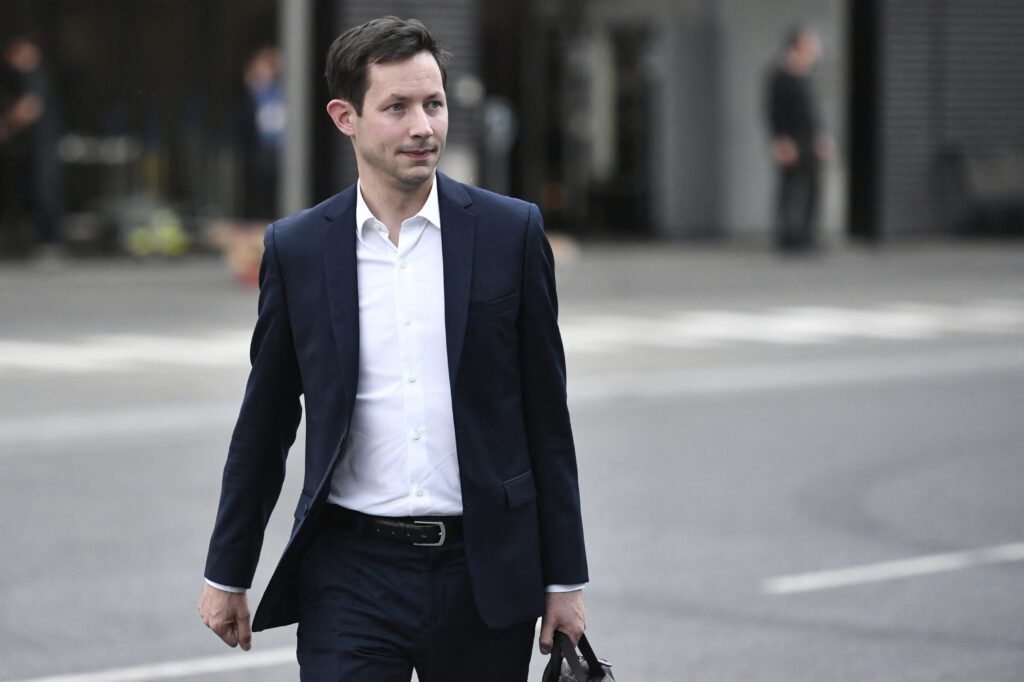No products in the cart.

Francois-Xavier Bellamy
AFP / POOL / STEPHANE DE SAKUTIN
The French centre-right party Les Républicains (LR) has once again officially named François-Xavier Bellamy as its head of the list for the European elections. The choice has been a long time coming, proof of the tensions that are weakening the party, which is struggling to exist between Emmanuel Macron’s centrist party and the national Right.
While Jordan Bardella, the current president of the Rassemblement National, was chosen to head his party’s list several months ago, the LR took their time to think things over before agreeing on who will represent them in the European Parliament elections in June. The party disagreed internally on the choice of candidate and the line he would embody. They eventually settled on a default choice: reappointing François-Xavier Bellamy, who embodies a conservative line within the movement and is already the title holder.
His candidacy, proposed in 2019 by Laurent Wauquiez, former president of the Les Républicains and likely candidate for the 2027 presidential election, at the time enabled his camp to garner only 8.4% of the vote, which was analysed as a stinging disavowal for this ideological line. It was the worst score ever achieved by this political family in a European election. Since then, the bitter failure of the LR in the presidential elections has put this initial setback into perspective. For many months, the new president of the Republicans, Éric Ciotti, hesitated about what strategy to adopt. In the end, the party failed to find a more convincing candidate.
François-Xavier Bellamy’s position is difficult to defend. His party belongs to the EPP group in the European Parliament, whose positions are often at odds with his own—on issues as diverse as energy, immigration control, and corruption. What’s more, unlike in 2019, this time, Bellamy will be up against two lists on his right: one for Rassemblement National, led by Jordan Bardella, and another for Reconquête, led by Marion Maréchal.
In an interview with Le Figaro, François-Xavier Bellamy talks about the significance of his candidacy. Attempting to bring the discourse back to national issues, he calls on right-wing voters to vote their convictions and get out of the confrontation between the parties of Emmanuel Macron and Marine Le Pen, which he believes is leading to a confinement of French political life. He explains, “These European elections are our chance to escape the despair of a perpetual second round, which we already know provides no solutions to the country’s major problems.”
Bellamy intends to build on his first mandate, acknowledging his youth and inexperience in the previous election. At the end of this first term, he intends to condemn Macronism—accused of systematically aligning itself with the Left at the European level—but also the Rassemblement National, criticised for its uselessness and inaction.
He says he wants to focus on migration policy, the revival of industrial production, and the defence of farmers—a topical issue as French farmers travel to Brussels to demonstrate against the stranglehold of European policy on their profession. “Farmers are on the front line, they are rightly sounding the alarm, but their distress concerns us all. Behind this fight against what is preventing Europe from projecting itself into the future is also the denial of its roots and its identity,” says François-Xavier Bellamy.
The MEP has no intention of playing second fiddle to the battle between the RN and Reconquête on the Right. He is focusing his attacks on the lack of consistency of the former—the Rassemblement National having abandoned the idea of leaving the European Union and then the euro several years ago—and on the futility of the latter—Reconquête being accused of encouraging the division of votes while preaching the union of the Right. François-Xavier Bellamy sees himself as the embodiment of a “serious, sincere and consistent” right-wing movement. His profile appeals to a section of the conservative Right, and his highly structured discourse is reassuring. But the ambiguity of his position remains, insofar as he remains dependent on his party and his group. For the time being, voters do not yet seem to trust him.